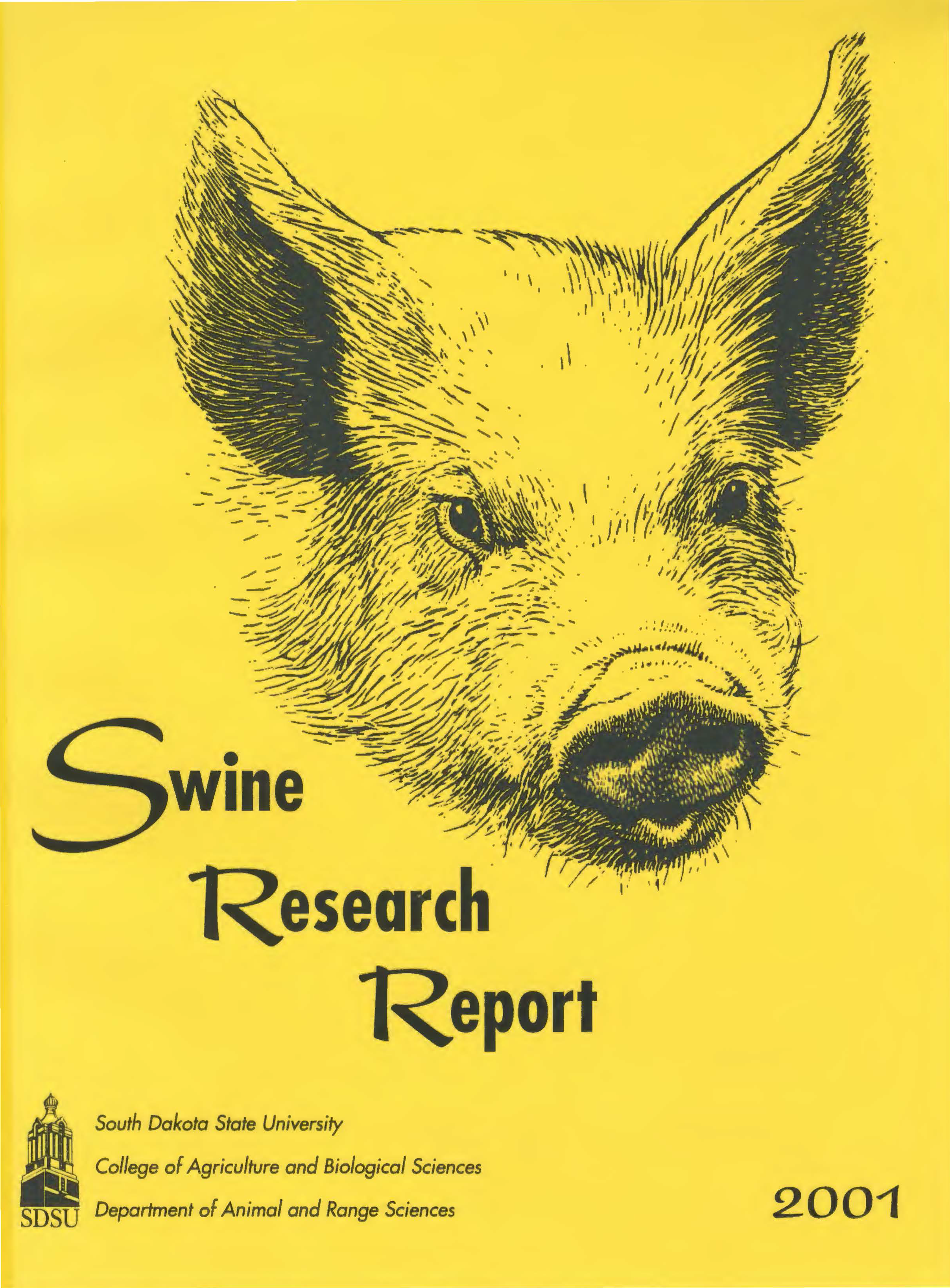Document Type
Article
2001-29
Publication Date
2002
Keywords
growing swine, temperature, group size and immune status
Summary
The effects of environmental conditions on the immune system of growing pigs (30-50 kg) were studied using T and B cell proliferation counts. Pigs were exposed to a constant 32°C ambient temperature versus a naturally occurring diurnal temperature variation during hot weather and a constant 10°C vs 21°C ambient temperature during cold weather. In addition, T and B cell proliferation counts were compared for pigs in single, 9 and 18 pigs/pen group sizes. Concancavalin A (ConA), Phytohemagglutinin (PHA) and Staphylococcal enterotoxin B (SEB) mitogens were used to determine T cell activation over time. Pokeweed (PWM), Lipopolysaccharide (LPS) and Salmonella typhimurium mitogen (STM) mitogens were used to determine B cell proliferation over time. ConA tests revealed significant (P<0.01) increases in T cell proliferation over time for both temperature treatments during hot weather. No significant differences in B cell proliferation were noted during the hot weather trials. A general decline in T cell activation over time was noted in both temperature treatments during cold weather. Significant (P<0.01) reductions in B cell activation were noted for all pigs in the cold weather trials. T and B cell proliferation comparisons for group size at all temperature treatments were non-significant. The objective of this experiment was to find what effects temperature and group size have on the capacity and function of a growing pig's immune system.
Number of Pages
8
Format
application/pdf
Language
en
Publisher
South Dakota State University
Rights
Copyright © 2001
Recommended Citation
Pohl, S.H.; Hurley, D.J.; Thaler, R.C.; and Chase, C.C., "Thermal Environmental Effects and Group Size
on Growing Swine Immune Status" (2002). South Dakota Swine Research Report, 2001. 30.
https://openprairie.sdstate.edu/sd_swinereport_2001/30

